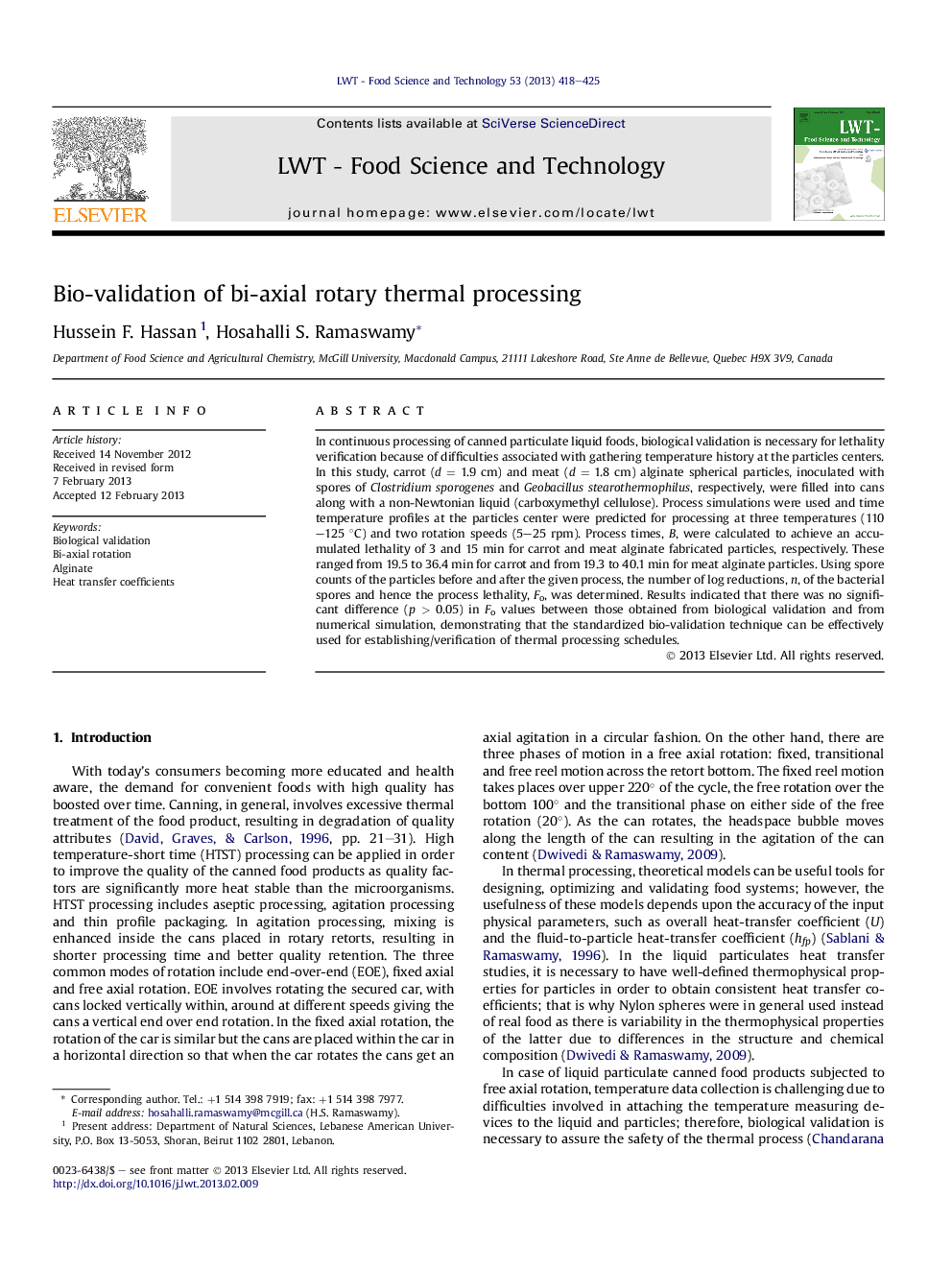| Article ID | Journal | Published Year | Pages | File Type |
|---|---|---|---|---|
| 6404422 | LWT - Food Science and Technology | 2013 | 8 Pages |
In continuous processing of canned particulate liquid foods, biological validation is necessary for lethality verification because of difficulties associated with gathering temperature history at the particles centers. In this study, carrot (d = 1.9 cm) and meat (d = 1.8 cm) alginate spherical particles, inoculated with spores of Clostridium sporogenes and Geobacillus stearothermophilus, respectively, were filled into cans along with a non-Newtonian liquid (carboxymethyl cellulose). Process simulations were used and time temperature profiles at the particles center were predicted for processing at three temperatures (110-125 °C) and two rotation speeds (5-25 rpm). Process times, B, were calculated to achieve an accumulated lethality of 3 and 15 min for carrot and meat alginate fabricated particles, respectively. These ranged from 19.5 to 36.4 min for carrot and from 19.3 to 40.1 min for meat alginate particles. Using spore counts of the particles before and after the given process, the number of log reductions, n, of the bacterial spores and hence the process lethality, Fo, was determined. Results indicated that there was no significant difference (p > 0.05) in Fo values between those obtained from biological validation and from numerical simulation, demonstrating that the standardized bio-validation technique can be effectively used for establishing/verification of thermal processing schedules.
⺠This study has relevance to process establishment in rotary thermal processing. ⺠It is difficult to gather particle time-temperature data in rotary processing. ⺠Bio-validation is an important aspect of biaxial rotary thermal processing. ⺠The study is aimed at standardizing procedure for bio-validation of thermal process. ⺠Methodology applicable to end-over-end & axial agitation processes.
